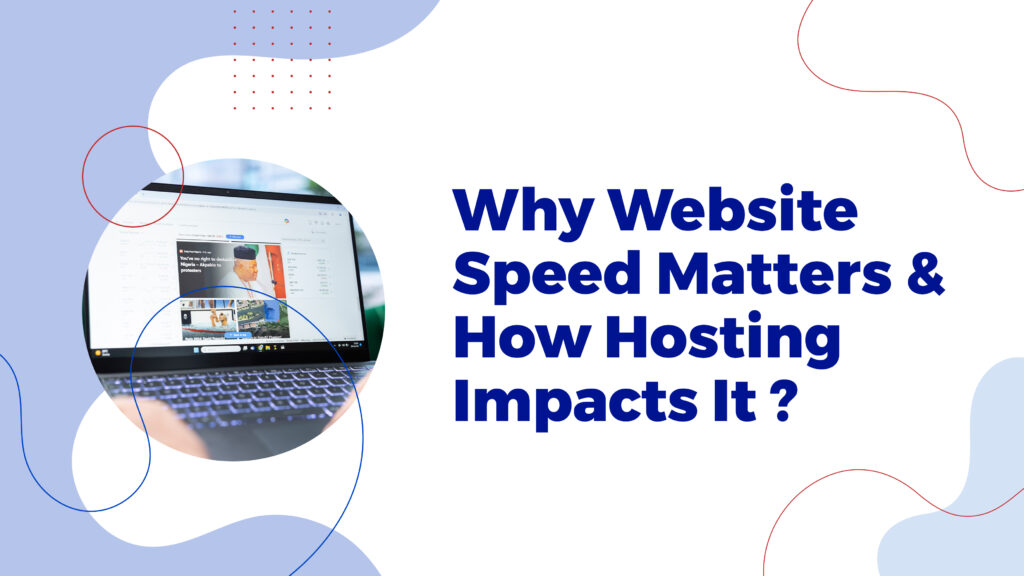In today’s digital world, users expect fast, seamless online experiences. Whether it’s an e-commerce store, a blog, or a business website, speed is no longer a luxury — it’s a necessity. Why website speed matters goes beyond just user experience; it also affects search engine rankings, conversions, and even your brand reputation. And one of the key factors influencing your site’s speed is your choice of web hosting.
Why Website Speed Matters for SEO and User Experience
The importance of website speed can’t be overstated. Studies show that users expect a website to load in under 3 seconds. If it takes longer, they’re likely to hit the back button and move on to a competitor. This is known as bounce rate, and a slow-loading site is a major contributor to it.
From an SEO perspective, Google uses page load time as a ranking factor. Faster websites are more likely to appear higher in search engine results. This means better visibility, more organic traffic, and greater chances of achieving your business goals.
Moreover, speed impacts user engagement. Visitors are more likely to stay longer, explore more pages, and take desired actions — like making a purchase or filling out a form — if your site loads quickly. So, why website speed matters is not just a technical issue; it’s central to your entire digital strategy.
How Web Hosting Impacts Your Site Speed
Your website hosting is the foundation of your online presence. While elements like design, images, and plugins can affect load times, the role of web hosting is often underestimated. Here’s how it plays a crucial role:
1. Server Response Time
Web hosting determines how quickly your server responds to requests. If your hosting provider uses outdated servers or overloads them with too many clients, your site will suffer slow response times. Choosing a host with fast and reliable infrastructure ensures better site speed.
2. Type of Hosting Plan
Shared hosting might be budget-friendly, but it comes with performance trade-offs. Your website shares resources with others, which can slow down your performance, especially during high-traffic periods. On the other hand, VPS (Virtual Private Server) or dedicated hosting offers better speed, security, and scalability.
3. Content Delivery Network (CDN) Integration
Good hosting providers offer CDN integration to deliver content from the server closest to the user’s location. This significantly reduces load time and enhances overall website performance.
4. Caching and Optimization Tools
A reliable host provides built-in caching, compression, and performance optimization features. These tools minimize data transfer and reduce server load, resulting in faster page rendering.
Tips to Improve Speed with Better Hosting
Now that you know why website speed matters, here are some ways your hosting choice can help improve it:
- Upgrade your hosting plan as your traffic grows.
- Choose a hosting provider with SSD storage, faster than traditional HDDs.
- Use hosts that offer HTTP/2 protocol support, which speeds up communication between the browser and server.
- Look for providers with guaranteed uptime and fast customer support, so issues are resolved promptly.
Conclusion
If you’re serious about your website’s success, speed should be at the top of your priorities. From better user experience and higher search engine rankings to increased conversions and trust, the benefits are undeniable. Why website speed matters is a question every website owner must understand — and act upon.
One of the most effective ways to ensure a fast website is by investing in quality web hosting. It’s the backbone of your site’s performance and plays a significant role in your digital success. So, make a smart hosting choice today, and see the difference it makes.
Still wondering why website speed matters? The answer lies in every click, search, and second your visitors spend on your site.



